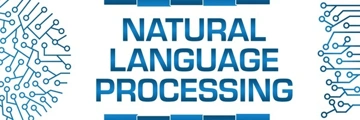
How Recommendation Algorithms Shape Our Preferences and Impact Free Will
In a world where algorithms tailor our online experiences, it's crucial to understand their impact on our choices. While they offer convenience, they also subtly guide our decisions, raising questions about free will. By staying informed and diversifying our information sources, we can ensure these tools serve us rather than shape us.
Emma Lane
09/11/2024 - 8 months ago

Understanding Recommendation Algorithms
Imagine browsing your favorite social media or shopping platform, and you notice that everything seems tailored just for you. This is thanks to social algorithms, which are designed to predict what you might like based on your past behavior. These algorithms analyze your clicks, likes, and even how long you spend looking at certain items. They then use this data to suggest content and products that align with your preferences.
However, while these recommendations can make your experience more personalized, they also raise questions about how much they shape our decisions. Research confirms that algorithms significantly impact choices and behaviors, often nudging us towards specific content or products. This means that while we think we are choosing freely, our options are subtly influenced by the algorithms.
The convenience provided by these algorithms is undeniable, but it’s essential to be aware of their impact. As you consume more content suggested by algorithms, your views and preferences may gradually shift, often without you even realizing it. This can create a feedback loop where the algorithm continues to reinforce certain patterns in your behavior.
The Impact on Free Will
The pervasive influence of recommendation algorithms brings up the age-old question of free will. With algorithms nudging us towards specific choices, it’s worth asking: are we truly making decisions independently, or are we being subtly guided? While these tools are designed to enhance user experience, they can also limit exposure to diverse perspectives.
For instance, if you are continuously shown content that aligns with your existing views, you might miss out on new ideas or alternative viewpoints. This phenomenon, often referred to as an "echo chamber," can make it harder to think critically about the information you receive. It’s crucial to actively seek out diverse content to ensure a balanced perspective.
Ultimately, while recommendation algorithms can streamline our online experiences, we must remain vigilant about their influence. By understanding how they work, we can make more conscious choices about the content we engage with and ensure that our preferences are genuinely our own.
Navigating the Algorithmic Landscape
To navigate this algorithm-driven world, it’s important to develop a sense of awareness about how these systems operate. Start by paying attention to the content being recommended to you and question why it might be appearing on your feed. This awareness can empower you to make more informed decisions.
Another strategy is to diversify your sources of information. By actively seeking out different viewpoints, you can break out of the algorithm's feedback loop and enrich your understanding of the world. This proactive approach can help mitigate the algorithm's influence and foster a more rounded perspective.
Engaging with technology consciously is key to maintaining control over your preferences. While algorithms are here to stay, we have the power to decide how much influence they have over us. By staying informed and curious, we can ensure that technology remains a tool that serves us, rather than one that shapes us.


















